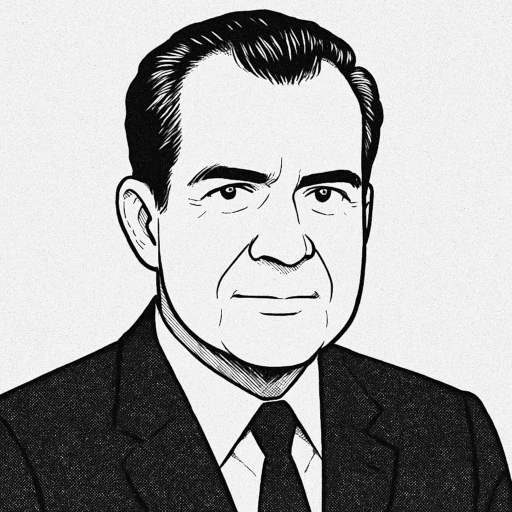“Under the doctrine of separation of powers, the manner in which the president personally exercises his assigned executive powers is not subject to questioning by another branch of government.”

- January 9, 1913 – April 22, 1994
- American
- The 37th President of the United States, Lawyer, Politician
table of contents
Quote
“Under the doctrine of separation of powers, the manner in which the president personally exercises his assigned executive powers is not subject to questioning by another branch of government.”
Explanation
In this quote, Richard Nixon articulates a broad interpretation of executive authority, grounded in the constitutional principle of separation of powers. By asserting that the president’s exercise of executive powers is “not subject to questioning” by other branches, Nixon is emphasizing a belief in presidential autonomy—that the executive branch has a distinct sphere of authority not to be intruded upon by the legislative or judicial branches. It’s a sweeping defense of executive privilege, rooted in the idea that checks and balances do not imply subordination.
This claim became central to Nixon’s legal arguments during the Watergate scandal, particularly as he resisted subpoenas for the White House tapes. His assertion reflected an expansive view of presidential power—one that was ultimately challenged and rejected by the Supreme Court in United States v. Nixon (1974). The Court unanimously ruled that no branch of government is above the law, and that the president cannot use separation of powers to withhold evidence relevant to a criminal investigation. This landmark decision reaffirmed that accountability overrides unilateral executive secrecy in the American constitutional system.
In modern discourse, Nixon’s quote continues to shape debates about executive authority, immunity, and accountability. Whether in matters of national security, presidential records, or investigations of official conduct, the tension between executive independence and legal oversight remains a defining feature of American governance. Nixon’s argument serves as a cautionary example of how unchecked interpretations of power can provoke constitutional crises, reminding us that separation of powers is designed to prevent—not protect—abuses of authority.
Would you like to share your impressions or related stories about this quote in the comments section?


